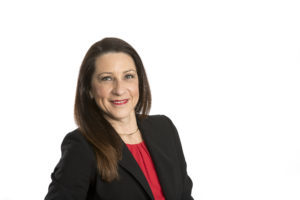
What makes someone a mentor rather than a coach, a colleague, or a friend? Is the value of mentorship confined by a professional landscape? What makes a valuable and effective mentor, and, moreover, what makes a quality mentee? Bank consultant Marci Malzahn dove into the practical dimensions of the buzzword “mentor” in a June webinar from BankBeatGroups.
Malzahn started her banking career as a teller Marquette Banks when she came to Minnesota in 1986. She moved nimbly through careers in cash management, private banking, online platforms, and ultimately branch management. After a five-year stint working at a nonprofit, she went back to banking in 2004. She agreed to start a bank with her old boss, on the condition that she would be the chief financial officer, and run the bank like a business. He agreed. “Imagine what an amazing opportunity he gave me. He was – and became – one of my mentors throughout my career in banking,” she said.
Career mentoring, Malzahn said, can prepare bankers for professional pivots, whether it’s a promotion, a career switch, or larger professional steps. Having a mentor can help a banker make more high-stakes decisions, both because of the mentor’s professional insight and the tailored understanding of the mentee. “[My mentor] really knew me, he knew my strengths, and he and I worked together really well,” she said.
Malzahn’s 23 years of banking experience allowed her to grasp skills in IT, nonprofit management and financing. But Malzahn said that good mentors loosen their grip on the skills they’ve acquired in their own experiences. “Mentoring is about teaching others and sharing your life – sharing what you’ve learned over the course of your life.” The entrepreneur said she’s mentored 18 people about education, marriage and parenting, careers and spirituality.
As opposed to coaching or training, Malzahn said, mentorship is more organic, unpaid and voluntary. She advised mentors to be patient, and let the mentee grow. Be humble, she said, and “share your successes as well as your mistakes.”
Aside from banking, Malzahn has started her own consulting firm, is a speaker on topics from banking, business, motivation and faith, and a writer of multiple books. “I’ve had mentors in all areas of my life,” she said. In the webinar, Malzahn distinguished between formal and informal mentoring, and said carefully selecting a mentor for a banker’s particular circumstances is important. Different areas of life, different personalities, and different goals call for specific mentors.
A banker looking to be mentored should respect his or her mentor’s time, as it’s freely given. Malzahn said the mentee should heed the mentor’s advice, but also act independently. “You can’t be asking him or her for every single decision.” Malzahn said a mentor should teach a banker to make responsible decisions individually.
Malzahn suggested both mentors and mentees should strive to get to know one another as people. With lively anecdotes and spirited encouragement, Malzahn explained how the key to a successful mentorship is trust, humility and generosity.
